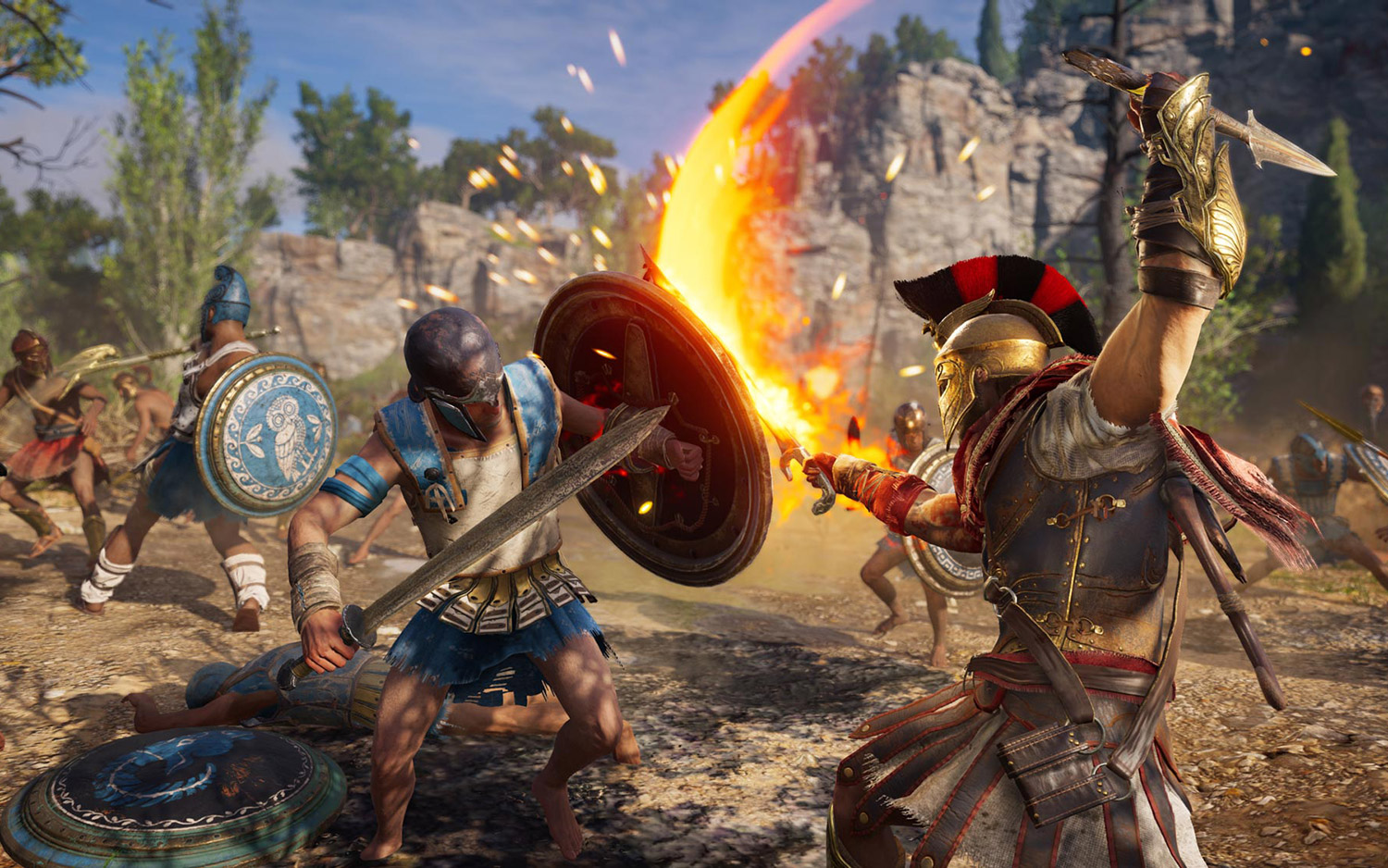
It seems that the upcoming Assassin's Creed Infinity will be, as the name suggests, massive. And to accommodate the change in scope, developer Ubisoft will reportedly take a live-service approach, updating the game constantly with new content to keep players engaged. For context, other live-service games with comparable business models include Marvel's Avengers, Fortnite, and Grand Theft Auto Online.
The news comes by way of Bloomberg, which claims that Ubisoft is aiming to create a "massive online platform," one that's constantly evolving and updating over time. This is a tantalizing bit of news that could change the Assassin's Creed series in a fundamental way, though the game itself is still years away from release.
- Here are the best Assassin's Creed games ranked
- Assassin's Creed Valhalla review
- Plus: Nintendo Switch OLED — how could this not support Bluetooth headphones?
While we assume Ubisoft wasn't ready to reveal details on Infinity, a spokeswoman did speak briefly to Bloomberg's Jason Schreier about the project. In a statement, she said the next Assassin's Creed will "exceed the expectations of fans who have been asking for a more cohesive approach."
Interestingly, after Bloomberg's story broke, Ubisoft put out a blog post highlighting the future of the franchise. While the post spoke at length about its team of developers and directors taking on this expansive project, no details were given, or even mentioned, about a live-service approach.
"Rather than continuing to pass the baton from game to game, we profoundly believe this is an opportunity for one of Ubisoft’s most beloved franchises to evolve in a more integrated and collaborative manner that’s less centered on studios and more focused on talent and leadership, no matter where they are within Ubisoft."
In the past Ubisoft had assigned the role of lead developer on each Assassin's Creed games to one of its internal studios. With Infinity, both its Montreal and Quebec studios will join forces, although each studio will still have an independent creative director. Quebec will take lead on the project, however.
According to Bloomberg, there's been a rivalry between the two studios that "at times turned acrimonious."
Get instant access to breaking news, the hottest reviews, great deals and helpful tips.
Ubisoft was also embroiled in sexual misconduct allegations last year that forced the ousting of a few key leaders within the company. How Ubisoft and these two studios will work together on the future of Assassin's Creed remains to be seen.
Regardless, the change to a live-service model might not be a big deal for most gamers. Likely, Ubisoft would want to still keep elements of a condensed single-player story that follows a character, or series of characters, on their historical adventures. But the goal for Ubisoft likely will be to keep gamers engaged, rather than having them log off once the end credits roll. In the past this was remedied by paid DLC packs that would add additional content. But there's invariably some falloff from players who opt not to return.
It's here, after the end credits, that Infinity may introduce more live-service elements, bringing in a constant rush of new content to keep players engaged.
This model of seasonal ever-changing scenarios has proven very profitable for multiplayer games like Fortnite, which has been generating big returns for developer Epic Games. It's a way to keep players hooked, and prevent them from moving on to whatever's next.
Although, no single-player live-service game has reached the level of success that Fortnite has. Games like Marvel's Avengers received a tepid response from gamers. While developer Crystal Dynamics is continuing to update the game with new content, the active player count on Steam has dropped to zero a few times in 2021.
But Marvel's Avengers is only one example. Many live-service games have proven to be enduring money-makers; the free-to-play mobile game Genshin Impact has been a tremendous live-service success, for example, surpassing $1 billion in revenue. Now, it appears Ubisoft is hoping to achieve similar success with Assassin's Creed Infinity.

Imad is currently Senior Google and Internet Culture reporter for CNET, but until recently was News Editor at Tom's Guide. Hailing from Texas, Imad started his journalism career in 2013 and has amassed bylines with the New York Times, the Washington Post, ESPN, Wired and Men's Health Magazine, among others. Outside of work, you can find him sitting blankly in front of a Word document trying desperately to write the first pages of a new book.
